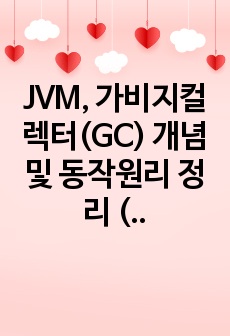* 본 문서는 배포용으로 복사 및 편집이 불가합니다.
서지정보
ㆍ발행기관 : 한국초등국어교육학회
ㆍ수록지정보 : 한국초등국어교육
ㆍ저자명 : 양태식
ㆍ저자명 : 양태식
목차
1. 머리말2. 국어 수업 환경의 변화
2.1 국어 교육에서의 최근의 변화 상황
2.2 국어 교육에서의 과제의 변화
3. 국어 수업에 대한 기본적 이해
3.1 국어 수업의 핵심 가치
3.2 국어 수업 과정에 대한 이해
4. 국어 수업 설계의 원리
4.1 국어과 교수−학습의 기본 원리
4.2 좋은 국어과 수업 설계를 위한 기본 방향
5. 맺음말
한국어 초록
이 글은 국어 수업 환경의 최근 변화 상황, 국어 수업에 대한 기본적 이해를 바탕으로 국어 수업 설계의 원리와 방향에 관해 모색해 본 것이다.국어 수업 환경 가운데 국어 교육에서의 최근의 변화관은 쓰기 혹은 쓰기와 읽기의 관계에 대한 특별한 강조, 학교 교재 이외의 다른 시판 국어 학습서의 증대, 국어수업에서의 학생 선택권에 대한 남다른 인식, 국어과에서의 범교과적 통합에 대한 높은 관심, 국어과 평가에서의 발달적 평가관의 대두 등이다. 국어 수업 환경 가운데 국어 교육에서의 과제의 변화는, 문식 능력에 대한 견해, 학생 및 교사 수행에 대한 기대치, 이해 및 표현 활동에 관한 학생 성취에 대한 책무성, 학교 교실에서의 학생들
의 구성 분포의 변화, 효과적인 언어 기능 교육 과정을 위한 노력 등이다.
국어 수업에 대한 기본적 이해 가운데 국어 수업의 핵심 가치는 다음 네 가지다:국어 교육의 궁극적 지향점; 국어 수업이 제공해야 할 경험의 성격; 국어 수업 시간에 반드시 밟아야 할 과정; 국어 수업이 다른 교과와 달리 특히 강조해야 할 책무성.
국어 수업에 대한 기본적 이해 가운데 국어 수업 과정에 대한 관점은 사회적 구성주의적 관점이 큰 흐름인데, 사회적 구성주의 관점에서는, 과정으로서의 언어 기능 학습을 능동적이고 적극적 과정; 사회적이고 상호 작용적 과정; 인지적 과정; 정서적 과정 등으로 설명하고 있다.
국어 수업 설계의 원리 가운데 국어과 교수−학습의 기본 원리로는 다음 일곱 가지를 들 수 있다:학습자 중심성의 원리; 통합성의 원리; 개별성의 원리; 실제성의 원리; 과제 기반성의 원리; 활동 지향성의 원리; 상호 작용성의 원리. 국어 수업 설계의 원리 가운데 좋은 국어 수업 설계를 위한 기본 방향은 크게 세 가지 관점에서 살필 수 있다. 첫째, 초등 국어 교육이란 관점에서의 국어 수업 설계의 방향; 둘째, 초등학교 과정에서의 국어 학습의 과제란 관점에서의 방향; 셋째, 초등학교 단계에서
의 국어 수업 과정에서의 절차라는 관점에서의 방향.
영어 초록
This paper aims to research on the principles and directions of designing for effective Korean language classrooms in Korean elementary schools.Principal findings of this research are as follows;
(1) Recently, there are several changing views concerning Korean language education:greater emphasis on writing and its relationship to reading; greater use of trade books combined with the use of Korean language textbooks in elementary schools; increased attention to the importance of student choice in the Korean language classrooms; increased attention the integration of the language arts with each other and across the curriculum;
appearance of perspective on developmental assessment.
(2) The tasks of Korean language learning in global, informational society have many changed comparing with 10 ~ 20 years ago:change of thinking about literacy in our society; expectation for performance of student and teacher have increased; responsibility about student performance in terms of comprehension and expression; change of students' population in the elementary schools; trouble for effective language arts curriculum.
(3) Core values of Korean language classrooms are as follows:ultimate goal of Korean language education(efficient promotion of Korean language abilities); nature of experiences that Korean language classrooms will serve(experiences related with acception and production of multiple media−text materials); obligatory courses of Korean language classrooms(process of constructing meaning similar with authentic language use out of classrooms);
especially emphasized responsibilities of Korean language classrooms different from other learning subjects(learners' own responsibilities concerned with all communications).
(4) The processes of Korean language classrooms according to building approach of certain perspective expose very different appearances. Having social constructivist perspective, learning language arts is as follows:learning language arts can be explained an active, a positive process; a social, interactive process; a cognitive process; an affective process.
(5) Basic principles of Korean language education are as follows:learner−centred; integration; individuality; authenticity; task−based; activity−directed; interactivity.
(6) Basic directions of designing effective Korean language classrooms can be discussed as follows:perspective about characteristics of elementary Korean language education; perspective about basic tasks of Korean language learning in elementary schools; perspective about special emphasis about processes of Korean language classrooms in elementary schools.
【Key words】changing views, change of tasks, core value, basic principles of teaching and learning, basic directions
참고 자료
없음"한국초등국어교육"의 다른 논문
 문학 텍스트로써의 판소리 동화 수용의 교육적 의의 : 이청준의 판소리 동화를 중심으로19페이지
문학 텍스트로써의 판소리 동화 수용의 교육적 의의 : 이청준의 판소리 동화를 중심으로19페이지 초등 글쓰기 평가의 개선 방안 : 예비교사의 담문 평가를 중심으로28페이지
초등 글쓰기 평가의 개선 방안 : 예비교사의 담문 평가를 중심으로28페이지 초기 쓰기의 특징과 지도 방향23페이지
초기 쓰기의 특징과 지도 방향23페이지 초등학교 설득하는 글쓰기 교육의 비판적 고찰40페이지
초등학교 설득하는 글쓰기 교육의 비판적 고찰40페이지 교육연극을 통한 초등 학습 관객의 현실 체험 교육 연구 : 현실주의 아동극을 중심으로26페이지
교육연극을 통한 초등 학습 관객의 현실 체험 교육 연구 : 현실주의 아동극을 중심으로26페이지 쓰기 평가 과제 내용 분석 연구30페이지
쓰기 평가 과제 내용 분석 연구30페이지 새 국어과 교육과정 문법 영역의 비판적 이해27페이지
새 국어과 교육과정 문법 영역의 비판적 이해27페이지 한국판 초등학생 읽기 태도 검사 도구의 타당도 검증23페이지
한국판 초등학생 읽기 태도 검사 도구의 타당도 검증23페이지 CORI(Concept−Oriented Reading Instruction)가 내용영역의..29페이지
CORI(Concept−Oriented Reading Instruction)가 내용영역의..29페이지 쓰기에서 독자 고려의 의미22페이지
쓰기에서 독자 고려의 의미22페이지


























